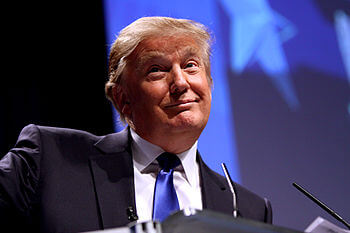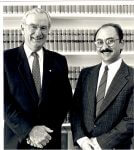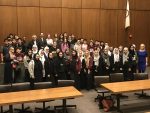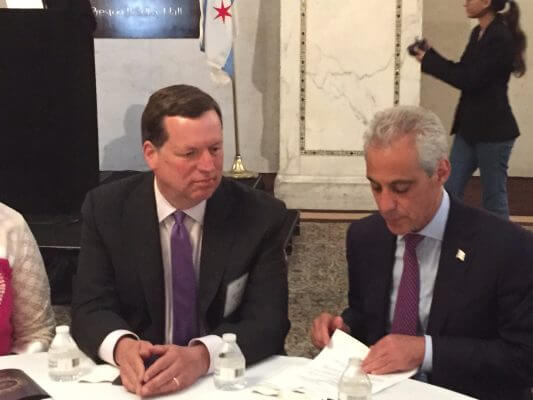By Ray Hanania
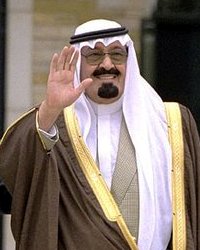
Saudi Arabia’s moderate leader and monarch, King Abdullah ibn Abdul Aziz al-Saud, 90, who has ruled the powerful Arabian kingdom for nearly a decade since 2005 when he succeeded his brother King Fahd, died Friday.
His Majesty King Abdullah was succeeded by his brother, Crown Prince Salman who was named the kingdom’s new monarch.
King Abdullah had been hospitalized with a lung infection since December 31 and died on Friday (Jan. 22, 2015) evening at Riyadh Hospital.
The Saudi Government released a short statement:
The Royal Court announced this evening with deep sorrow and pain the death of Custodian of the Two Holy Mosques King Abdullah bin Abdulaziz. King Abdullah passed away Friday, 3 Rabi’ al Thani 1436H (January 23, 2015) at 1:00 am local time. Funeral prayers for King Abdullah will be held tomorrow following Asr (afternoon) prayers at the Imam Turki bin Abdullah Mosque in Riyadh.
Crown Prince Salman was proclaimed King of the Kingdom of Saudi Arabia today
In accordance with the Basic Law of Governance, Crown Prince Salman bin Abdullah was proclaimed King of the Kingdom of Saudi Arabia.
Under the late King Abdullah, Saudi Arabia sought to move the country forward in modernity without surrendering its faith, culture and heritage.
Abdullah was born on 1 August 1924. He is the tenth son of King Abdulaziz. His mother, Fahda bint Asi Al Shuraim was a member of Al Rashid, longtime rivals of the Al Saud. She was descended from the powerful Shammar tribe and was the daughter of former Shammar tribe chief, Asi Shuraim. She was killed when Abdullah was six. He had younger full-sisters.
Madawi al Rasheed argues that his maternal roots and his experience of an early speech impediment led to delay in his rise to higher status among the other sons of King Abdulaziz.
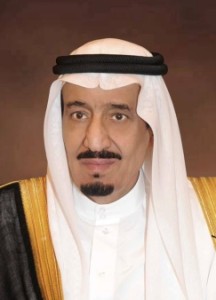
King Khalid appointed Prince Abdullah as second deputy prime minister in March 1975, a reflection of being the second in line of succession to the Saudi throne. In other words, after this appointment, Prince Abdullah became the number three-man in Saudi administration. However, his appointment caused friction in the House of Saud. Then-crown prince Prince Fahd together with his full-brothers known as Sudairi Seven supported the appointment of their own full brother, Prince Sultan. Prince Abdullah was pressured to concede control of SANG in return for his appointment as Second Deputy Prime Minister. In August 1977, this caused a debate between hundreds of princes in Riyadh. Abdullah did not concede authority of SANG because he feared that would weaken his authority.
On 13 June 1982 when King Khalid died, Fahd bin Abdulaziz became King, Prince Abdullah became Crown Prince the same day. He also maintained his position as head of the National Guard. During his years as crown prince, Abdullah bin Abdulaziz was described as a supporter of accommodation. He managed to group[clarification needed] a large number of fringe and marginalized princes discontented with the prospect of the succession being passed among the Sudairi brothers one after the other. His control of the National Guard also was a key factor in his success in becoming crown prince. When King Fahd was incapacitated by a major stroke in 1995,[25] Crown Prince Abdullah acted as de facto regent of Saudi Arabia.
In May 2001, Crown Prince Abdullah did not accept an invitation to visit Washington due to U.S. support for Israel in the Al Aqsa Intifada. He also appeared more eager than King Fahd to cut government spending and open Saudi Arabia up economically. He pushed for Saudi membership in the World Trade Organization, surprising some.
In August 2001, he ordered then Saudi Ambassador to the US, Bandar bin Sultan, to return to Washington. This reportedly occurred after Crown Prince Abdullah witnessed a brutality between an Israeli soldier and a Palestinian woman. He later also condemned Israel for attacking families of accused suspects.
In 2002, he developed an Arab peace initiative, commonly referred to as the “Abdullah plan”, to achieve mutually agreed-on resolution of the Arab-Israeli conflict. The initiative was adopted at the League of Arab States’s Beirut summit in March 2002.
On the second anniversary of the September 11 attacks, Crown Prince Abdullah wrote a letter to U.S. President George W. Bush, which ended with the following words:
“God Almighty, in His wisdom, tests the faithful by allowing such calamities to happen. But He, in His mercy, also provides us with the will and determination, generated by faith, to enable us to transform such tragedies into great achievements, and crises that seem debilitating are transformed into opportunities for the advancement of humanity. I only hope that, with your cooperation and leadership, a new world will emerge out of the rubble of the World Trade Center: a world that is blessed by the virtues of freedom, peace, prosperity and harmony.”
By late 2003, after the Saudi Arabian branch of al-Qaeda carried out a series of bombings that threatened to destabilize the country, Crown Prince Abdullah together with other decision-making elites began to deal with political concerns. One of such moves was his project to promote more tolerance for religious diversity and rein in the forces of politico-religious extremism in the kingdom, leading to the establishment of National Dialogue. In the summer of 2003, Abdullah threw his considerable weight behind the creation of a national dialogue that brought leading religious figures together, including a highly publicized meeting attended by the kingdom’s preeminent Shi’i scholar Hasan al-Saffar, as well as a group of Sunni clerics who had previously expressed their loathing for the Shi’i minority.
Here is the official biography of the late King Abdullah, as posted by the Saudi Embassy:
Custodian of the Two Holy Mosques King Abdullah bin Abdulaziz (1924 – 2015) was proclaimed the sixth King of the Kingdom of Saudi Arabia on 25 Jumada al-Thani 1426H (August 1, 2005), upon the death of Custodian of the Two Holy Mosques King Fahd bin Abdulaziz.
King Abdullah was also Prime Minister of the Council of Ministers and Commander of the National Guard.
King Abdullah was born in Riyadh in 1924, and received his early education at the royal court. Influenced by his father, founder of the modern Kingdom King Abdulaziz Al-Saud, he developed a profound respect for religion, history and the Arab heritage. His years spent living in the desert with Bedouin tribes taught him their values of honor, simplicity, generosity and bravery, and instilled in him the desire to assist in the development of his people.
In 1962, Prince Abdullah was chosen by King Faisal to command the National Guard. He was appointed Second Deputy Prime Minister in 1975 on the succession of King Khalid, and when King Fahd came to the throne in 1982, he was named Crown Prince and First Deputy Prime Minister. In the latter capacity, he presided over cabinet meetings and governed the country as deputy to Custodian of the Two Holy Mosques King Fahd bin Abdulaziz.
Since ascending the throne in 2005, King Abdullah made development a central focus of his reign. He initiated a range of major economic, social, education, health, and infrastructure projects that have brought about remarkable changes throughout the Kingdom.
King Abdullah’s notable achievements in this area included the launch of four mega economic cities, the creation of the King Abdullah University of Science and Technology and the Princess Nourah bint Abdulrahman University for Girls, projects to expand the Two Holy Mosques and major welfare projects. He also approved a historic reorganization of Saudi Arabia’s judicial system and enacted laws to formalize the royal succession. As Crown Prince in 2005, he closely monitored the ongoing election process for the country’s municipal councils.
On a global level, King Abdullah’s participation in international diplomacy reflects the Kingdom’s leadership role in defense of Arab and Islamic issues and for the achievement of world peace, stability and security.
He took a leading role in promoting dialogue among the world’s leading faiths. His call for interfaith dialogue has resulted in the convention of the World Conference on Dialogue in Madrid, Spain and a United Nations conference on dialogue in 2008.
King Abdullah has also sought to resolve conflicts in the Arab and Islamic world. Peace in the Middle East and the plight of the Palestinians are of particular concern to him, and the initiative on these that he presented at the Beirut Arab Summit in 2002 has been adopted by the League of Arab States, as has his forward-looking strategy for a unified Arab stance on international issues. He has played a key role in brokering agreements for a Palestinian national unity government and a reconciliation accord between Sudan and Chad on Darfur.
A strong advocate of constructive global cooperation, King Abdullah has held a number of important international summits and meetings in the Kingdom. In June 2008, he hosted the Jeddah energy summit to discuss ways of stabilizing global oil markets. Other major international meetings include the Third OPEC Summit of Heads of State and the 19th Arab League Summit in 2007 and the 27th summit of the GCC Supreme Council in 2006.
On the issue of terrorism, King Abdullah has been unwavering in his condemnation of the taking of innocent lives, and in his denunciation of deviant groups that falsely claim to be Islamic. At the Counter-Terrorism International Conference in Riyadh in February, 2005, he urged international cooperation to fight this global scourge.
King Abdullah has undertaken numerous state visits both as Custodian of the Two Holy Mosques and as Crown Prince to strengthen Saudi Arabia’s relations with countries around the world. Recent state visits include Spain, France, Egypt, Jordan, Britain, Italy, Germany and Turkey in 2007, and China, India, Pakistan and Malaysia in 2006.
The King’s first official visit to the United States was as Prince Abdullah in 1976, when he met with President Gerald Ford. His second visit was in October 1987, as Crown Prince, when he met with President George H.W. Bush. In September 1998, he made his third state visit to the United States, meeting in Washington, DC with President Bill Clinton. He met again with President Clinton in September 2000 while attending the Millennium event at the UN in New York.
On April 25, 2002, and again on April 25, 2005, Crown Prince Abdullah was received by President George W. Bush at the presidential ranch in Crawford, Texas. In 2008, King Abdullah twice hosted President Bush at the royal ranch in Jenadriyah, most recently in May when the president visited Saudi Arabia to mark the 70th anniversary of Saudi-US relations.
Throughout his life, King Abdullah has retained a love of the desert, along with a love of horsemanship. He is a breeder of pure Arabian horses, and founder of the equestrian club in Riyadh. Another life-long passion is reading, to which he attributes great importance. He has established two libraries, the King Abdulaziz Library in Riyadh, and one in Casablanca, Morocco.


- Israelisnipers shooting and killing hospital workers in Gaza - December 11, 2023
- CAIR Condemns Israeli Executions of Wounded, Unarmed Palestinian in West Bank - December 11, 2023
- Arab and Muslim American voters face a “simple choice” between Biden’s inhumanity and Trump’s edgy politics - December 9, 2023














